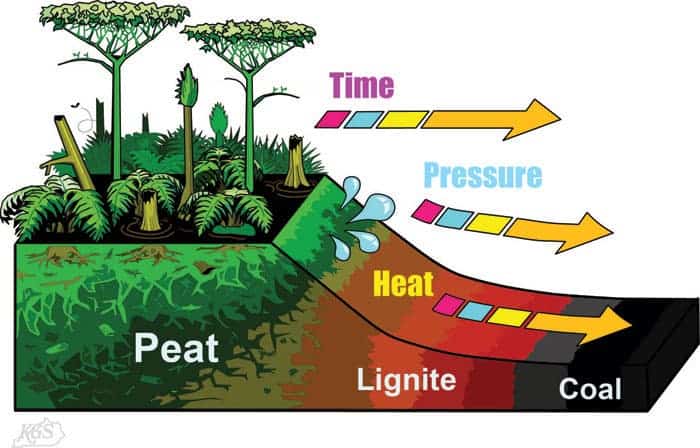Coal is a fossil fuel that is used to generate electricity and heat. It is formed from the remains of dead plants and animals that lived millions of years ago. The process of coal formation takes a long time and involves several stages. In this article, we will discuss approximately how long it takes for coal to form.
Stage 1: Peat Formation

Peat is the first stage in coal formation. It is formed from dead plant matter that accumulates in wetlands, bogs, and swamps. Peat is usually composed of partially decomposed plant materials, such as mosses, sedges, and reeds. The process of peat formation can take hundreds to thousands of years, depending on the local climate and vegetation.
Stage 2: Lignite Formation
Lignite is the second stage of coal formation. It is formed from peat that has been buried and subjected to increasing pressure and temperature. Lignite is a brownish-black coal with a high moisture content and low heat content. The process of lignite formation can take tens of thousands of years.
Stage 3: Bituminous Formation
Bituminous coal is the third stage of coal formation. It is formed from lignite that has been buried and subjected to more pressure and temperature. Bituminous coal is a dense, black coal with a high heat content. The process of bituminous formation can take hundreds of thousands of years.
Stage 4: Anthracite Formation

Anthracite is the final stage of coal formation. It is formed from bituminous coal that has been buried and subjected to even more pressure and temperature. Anthracite is a hard, shiny, black coal with a high heat content. The process of anthracite formation can take millions of years.
Factors Affecting Coal Formation

The time it takes for coal to form depends on several factors, including:
- Climate
- Geology
- Vegetation
- Topography
- Time
In general, coal formation is faster in warm, humid climates with abundant vegetation. It also depends on the geology of the area, such as the presence of sedimentary rocks and faults. Topography can also play a role, as coal formation is faster in areas with low relief. Finally, the longer the time available for coal formation, the more advanced the stage of coal that can be formed.
Conclusion
In conclusion, coal formation is a complex process that takes a long time. The time it takes for coal to form depends on several factors, including climate, geology, vegetation, topography, and time. Understanding the process of coal formation is important for the sustainable use and management of this valuable resource.